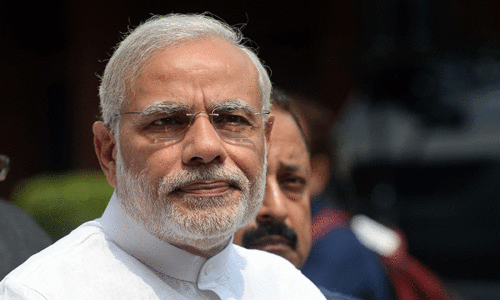AFTER successive days of hostilities between Pakistan and India, Wednesday brought a respite from significant military action. Indeed, yesterday was dominated by Prime Minister Imran Khan’s announcement that the Indian pilot captured by Pakistan will be returned to India today.
The swift announcement by Prime Minister Khan could help defuse a crisis that should not be considered over until India clearly and unambiguously signals that it intends to cease military hostilities.
A news conference held by representatives of India’s armed forces after Mr Khan made his surprise announcement could be interpreted as a step in the right direction: no new threats were made and the focus was on the Indian version of what transpired earlier in the week.
Yet, it will almost certainly take more urgent diplomacy by the international community and a significant change in Indian rhetoric and actions before the risk of conflict, or worse, can be deemed to have receded at this stage.
The announcement by Prime Minister Khan that Pakistan will release the captured Indian pilot today was greeted by loud applause in parliament.
Throughout the present crisis, the national leadership has emphasised that while Pakistan reserves the right to defend itself against external aggression, Pakistan does not want and is not seeking war with India.
The prime minister has termed the pilot’s release a “peace gesture”, and New Delhi should use it as an opportunity to recast the discourse inside India, which has drifted dangerously towards jingoism and pro-war sentiment in recent days.
With so much of the war discourse focused on abstract and, arguably, removed-from-reality notions of pride and definitions of success, the captured Indian pilot has provided a human face to the potential costs of war.
Soldiers and the average citizen on both sides are on whom the costs of war would fall first, and disproportionately so. Policymakers and war architects must never be allowed to forget that reality.
There is a need also for the media, particularly in India, to dwell on its irresponsible role in seemingly cheering on armed hostilities between the two countries.
The Indian media immediately and overwhelmingly cheered on the Indian state’s claim of having targeted an alleged militant training camp in Pakistan, while sections of the Pakistani media celebrated the downing of an Indian warplane and the capture of the pilot.
In the main, the media in neither country has attempted to factually contribute to the national discourse; it has focused, instead, on promoting unchecked and unverified state narratives.
A meaningful and sustainable ratcheting down of tensions will only occur when the leadership, media and influential elements in society in each country focus not only on what is required of the other country but also on the actions and introspection necessary in their own. It is hoped that the de-escalation will be swift and that a deep introspection follows in both countries.
Published in Dawn, March 1st, 2019












































